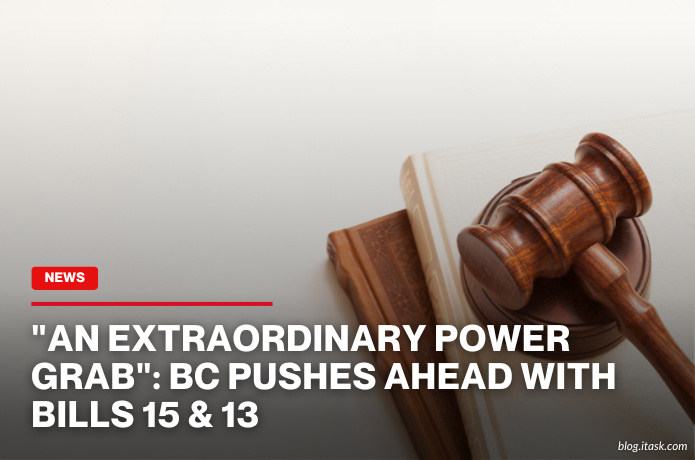"An Extraordinary Power Grab": BC Pushes Ahead With Bills 15 & 13
"An Extraordinary Power Grab": BC Pushes Ahead With Bills 15 & 13

The B.C. NDP government has introduced two new laws—Bill 13 and Bill 15—that give the provincial government sweeping new powers over land use, municipal planning, and infrastructure projects. Critics say these laws allow Victoria to override decisions made by city councils and local residents, undermining community input in favour of faster development. This shift marks a clear departure from traditional local control, stirring concerns about democratic norms and fair process.
Bill 13, labeled the Miscellaneous Statutes Amendment Act, quietly revises municipal governance rules. It effectively states that if a provincial law conflicts with a municipal bylaw, the provincial law wins. As a result, developers could pursue large-scale projects even if local plans oppose them—and local authorities would have little say. Vancouver’s former councillor and ex-minister Darlene Marzari warned that this power grab treats local zoning as “no more than an ultimatum,” stripping communities of meaningful influence.
Bill 15, the Infrastructure Projects Act, centralizes control of major public works and infrastructure. It empowers the B.C. cabinet to designate a project as “provincially significant,” streamlining or bypassing normal approvals—and even removing environmental reviews and public hearings. Groups argue this could lead to rushed decisions that sidestep Indigenous consultation and environmental protections. First Nations leaders and municipal reps are warning that such shortcuts threaten both the environment and reconciliation efforts.
Supporters in government say the new laws will help build vital infrastructure—schools, hospitals, transit lines—more quickly, framing them as tools to grow the economy and alleviate housing crises. Premier David Eby has assured the public that Indigenous rights protections remain intact, claiming no project will move forward without their consent. And Infrastructure Minister Bowinn Ma emphasized that these laws are meant to cut red tape for large but routine public works, not controversial private developments.
Despite these assurances, concern is mounting. The Union of B.C. Municipalities has requested amendments to Bill 15, noting that municipalities weren’t properly consulted and that the bill gives cabinet “extraordinary powers” over zoning and subdivisions. Spacing Vancouver’s Erick Villagomez described the laws as moving “from incentive to ultimatum,” putting local planning under provincial command. Environmental and Indigenous advocates are particularly worried about the broad, undefined scope of “provincially significant” projects.
As the legislature raced to pass both bills before the session ended in late May, critics called for them to be paused and reassessed with proper public consultation. While the government views this as necessary for swift progress on housing and infrastructure, opponents say it comes at the cost of transparency, democracy, and community trust. What remains to be seen is whether B.C. residents and local leaders will accept this centralization—or push back to reclaim local control over planning and development.
